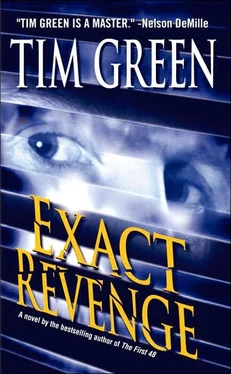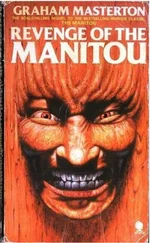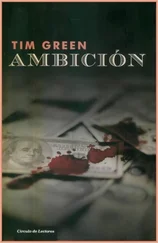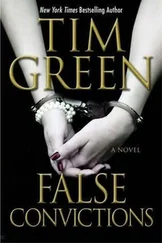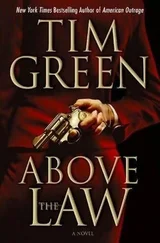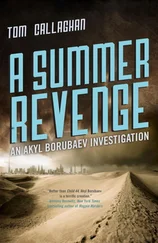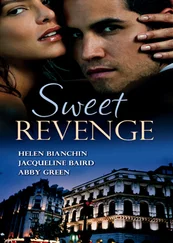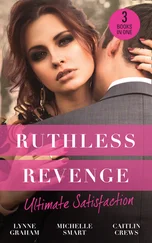Tim Green - Exact Revenge
Здесь есть возможность читать онлайн «Tim Green - Exact Revenge» весь текст электронной книги совершенно бесплатно (целиком полную версию без сокращений). В некоторых случаях можно слушать аудио, скачать через торрент в формате fb2 и присутствует краткое содержание. Жанр: Триллер, на английском языке. Описание произведения, (предисловие) а так же отзывы посетителей доступны на портале библиотеки ЛибКат.
- Название:Exact Revenge
- Автор:
- Жанр:
- Год:неизвестен
- ISBN:нет данных
- Рейтинг книги:4 / 5. Голосов: 1
-
Избранное:Добавить в избранное
- Отзывы:
-
Ваша оценка:
- 80
- 1
- 2
- 3
- 4
- 5
Exact Revenge: краткое содержание, описание и аннотация
Предлагаем к чтению аннотацию, описание, краткое содержание или предисловие (зависит от того, что написал сам автор книги «Exact Revenge»). Если вы не нашли необходимую информацию о книге — напишите в комментариях, мы постараемся отыскать её.
Exact Revenge — читать онлайн бесплатно полную книгу (весь текст) целиком
Ниже представлен текст книги, разбитый по страницам. Система сохранения места последней прочитанной страницы, позволяет с удобством читать онлайн бесплатно книгу «Exact Revenge», без необходимости каждый раз заново искать на чём Вы остановились. Поставьте закладку, и сможете в любой момент перейти на страницу, на которой закончили чтение.
Интервал:
Закладка:
“Her family was from the reservation outside Toronto,” I say, remembering now that the northern Mohawks call themselves by their own name.
Bonaparte narrows his eyes and says, “You got a white nose.”
“My father,” I say. “My mother grew up in the Onondaga Nation.”
“So after George here beats your ass black and blue,” he says, “you can go back down there and rediscover your roots, but no one comes up here and passes bad money to us. Not no white man. Not no half-breed. Not no skin.
“Go ahead, George.”
The biggest Indian steps for me and swings a big fist from out far. I duck and rabbit-punch him just below the rib cage. The air huffs out of George and he staggers, then kicks at me hard with a gilt-toed cowboy boot. He’s quick for a big man, and the metal toe nicks my knee and I tumble. George is on top of me with his fists pummeling. I slip out, twist his arm up and back, and jam his face into the gravel. He roars.
I whip my legs around his abdomen and clamp my arms around his neck. I twist and squeeze at the same time, and after less than ten seconds of struggling, George collapses on his face.
I’m on my feet. Ready.
Bonaparte waves his gun in my direction and says, “Take your goddamn bike and get the fuck off this reservation.”
It’s a ten-mile walk to Massena, but I’m not sitting in this guy’s piss.
“You can keep the bike,” I say, turning to go. “It’s stolen.”
“Hey,” Bonaparte says. “You really a skin?”
“Call down to the Nation,” I say, stopping to look him in the eyes. “My mother was Martha St. Claire. They named me Running Deer.”
One side of Bonaparte’s mouth creeps up as if he’s either skeptical or amused.
“You want a job, Quick Buck?”
“Doing what?”
“What you just did,” he says, angling his face down at George, who is now sitting up and rubbing the back of his neck.
“I need a place to stay,” I say, “and I need to stay away from the white law.”
“The only law here is me,” Bonaparte says. “We’re a sovereign nation.”
He sticks the pistol back in his jeans, turns, and climbs back into the extended cab. I get in on the other side. George gets into the front seat with the other long-haired goon, whose name is Bert. Bert’s big belly is shaking and he’s having a hard time not smiling, even under George’s evil glare.
A grainy picture of Lester and one of me from twenty years ago runs the next day on page five of the Watertown Daily Times . It talks about the attempted escape, how Lester Cole was shot dead, and that they are looking for my body somewhere downstream. Mostly, it’s treated as downstate news, separate and apart from the North Country. Anyway, Bonaparte and his men don’t seem to read much and my hair is much longer now than in the picture. Even so, I take to wearing a Buffalo Bills cap with the brim pulled low.
The Akwesasne let me share a trailer with Bert, the big man with fat round cheeks and eyes squinted in a permanent smile. He has an old streamliner, a silver-skinned melon buried in a nest of high grass and weeds. It’s small but clean, with two tiny bedrooms and its own shower and toilet that drains into a septic tank that has to be pumped once a month. Bert leaves me alone for the most part, except when he’s trying to get me to participate in one of his two favorite pastimes: drinking Molson Golden and thumb wrestling.
One day I am reading a New York Times account about Judge Villay’s ruling for the Second Circuit Court of Appeals on same-sex marriages when Bert walks in with a bottle of Molson Golden. He offers me one and I look up from my paper to say that I would. When Bert sees the paper, his face clouds over and he takes a step toward me.
“You know that man?”
There is a picture of the curly-headed little judge, Dean Villay, in the top corner of the page.
“Long time ago,” I say.
“Friend?”
“Enemy.”
“Good,” Bert says, his face softening a bit, but his voice still bitter. He goes to the refrigerator and returns with a bottle of beer for me.
“If I ever get the chance,” he says, flopping down in a worn-down La-Z-Boy recliner, “I’m gonna kill that man, judge or no judge.”
Bert tells me the story about his younger brother who lived and worked in Watertown and a trip the two of them took one weekend to visit some friends at the Onondaga Nation so they could watch the ABA bowling championships in Syracuse. They were at a South Side bar after the finals when his brother got into a scuffle with some locals. After the fight, the two of them decided to head north instead of spending the night with their friends on the reservation. They were back at his brother’s apartment in Watertown when his brother realized that somehow during the fight he had lost his knife, a nickel-plated switchblade.
The next day, the police showed up at the door to arrest his brother for the murder of the man he got into the fight with. Villay was prosecuting his brother on the theory that after the fight, he ambushed the dead man while he walked home, stabbing him fifteen times with the nickel-plated switchblade that was left at the scene.
Bert was his brother’s only alibi and chance to prove his innocence. At the trial, Villay had torn Bert to pieces, but the jury never did get to issue a verdict. The night after Bert’s testimony, his brother hanged himself in the Public Safety Building.
“I don’t know if I’ll ever get that chance,” Bert says, getting up for two more bottles of beer, “but if I do…”
Bonaparte isn’t the chief, but he runs things: the casino, the big-stakes bingo parlors, and a smuggling operation that brings mostly cigarettes across the river from Canada, where the taxes are low enough to make the whole venture extremely profitable. Bonaparte also runs some marijuana to supply the Adirondacks, but it’s not a big market and I think he and his men smoke most of the profits.
I get paid every Friday in cash. We drive up to Bonaparte’s big white contemporary home overlooking the river, and he laughs as he pays me with hundred-dollar bills that he says might be real, but might not, since I don’t know the difference. Most of the men eat, drink, smoke, and gamble away their pay, but they don’t seem to resent me for saving my money and spending most of my free time reading under the bare bulb that hangs down over Bert’s couch. My name has evolved from Running Deer to Bonaparte’s Quick Buck to the men’s version of Quick Book.
There is an Akwesasne named Andre who is one of Bonaparte’s lieutenants, and after a while Bert and I are the ones who get sent with him to collect drug money. I’m not crazy about these runs since they take us off the reservation, but this isn’t a democracy and I don’t get a vote.
Andre is a young man, only twenty-five. He is smooth-skinned and handsome, with big round eyes, a straight narrow nose, and shiny black hair cut blunt just above his collar. He’s a half-breed like me, and with dark hair on his arms and legs, he looks more like a Caucasian than an Indian, but no one ever talks about it. Andre plays the guitar and his passion is his band, but it’s his viciousness that pays the bills. He’s the one Bonaparte sends out to collect from the white man.
The rumor is that Andre beat up his own father with a tire iron. It is fact that he’s done it to plenty of other white men, and it doesn’t take me long to realize that Andre likes his job, that he goes into a place eager for trouble.
One night, we catch up with a pot dealer in his cabin outside of Lake Placid. The guy has this high school cheerleader on his couch stripped down and ready to go when we bust in. He coughs up the cash he owes real fast, but Andre bops him on the head with the butt of his gun anyway and grabs the girl by the wrist and starts dragging her screaming into the bedroom.
Читать дальшеИнтервал:
Закладка:
Похожие книги на «Exact Revenge»
Представляем Вашему вниманию похожие книги на «Exact Revenge» списком для выбора. Мы отобрали схожую по названию и смыслу литературу в надежде предоставить читателям больше вариантов отыскать новые, интересные, ещё непрочитанные произведения.
Обсуждение, отзывы о книге «Exact Revenge» и просто собственные мнения читателей. Оставьте ваши комментарии, напишите, что Вы думаете о произведении, его смысле или главных героях. Укажите что конкретно понравилось, а что нет, и почему Вы так считаете.
